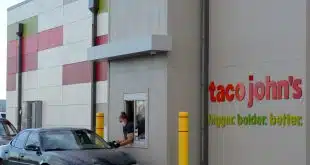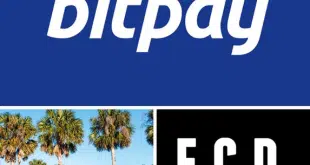By Kevin Woodward
@DTPaymentNews
With the U.S. point-of-sale conversion to EMV chip card acceptance well under way, attention turns to the upcoming liability shifts for ATM and fuel-dispenser transactions.
First up is MasterCard Inc.’s liability shift for ATMs, which kicks in Oct. 21. Both MasterCard and Visa Inc. also have a liability shift scheduled for fuel dispensers on Oct. 1, 2017.
Many ATM operators, which like their point-of-sale brethren typically accept both MasterCard- and Visa-branded cards, are upgrading their cash machines for both brands, says Stephanie Ericksen, Visa vice president of risk and authentication products.
“We have seen a lot of banks and financial institutions upgrade their ATMs,” Ericksen tells Digital Transactions News. The precise figures about the number of upgraded machines is not available to share yet, she says.
Approximately 50% of ATMs are bank owned, Ericksen says, and many of these machines are equipped for EMV chip card acceptance already. It may take a little longer for third-party ATMs, such as those owned by independent sales organizations, to make the upgrade. The ATM Industry Association, a trade group for independent ATM operators, found in a survey released in March that most ATM owners—88%—know about the EMV liability shift dates. At the time, 51% of ATM operators had upgraded more than half of their fleet.
Now, more than six months later, the industry is keeping up with its upgrade efforts, says David Tente, executive director of the ATMIA’s Sioux Falls, S.D.-based U.S. organization. “It is estimated that 58% of operators (both financial institutions and independents) would have the vast majority of their ATMs migrated to EMV and accepting EMV transactions by the end of this year,” Tente says in an email to Digital Transactions News.
With another year until fuel dispensers have to meet the EMV standards or face potential liability for counterfeit card transactions, petroleum sales operators may benefit from what other EMV adopters have learned. For example, as Ericksen says, some have been evaluating fraud rates in certain geographic areas and how to prioritize EMV equipment and software installations. There’s a lot of data to look at, she says, that may reveal existing counterfeit fraud patterns.
With fairly consistent announcements of card fraud at fuel pumps, the case for adopting EMV is strong, says Michael Moeser, director of payments at Javelin LLC, a Pleasanton, Calif.-based payments consultancy. Petroleum marketers’ motivation to adopt chip-card technology will mount as fraudsters shift their attention from the point of sale, where EMV adoption is increasing, and look for easier venues to commit their crimes using magnetic-stripe cards, he says.
Still, more time is needed, says the Merchant Advisory Group, a Minneapolis-based association of retail executives concerned with payments issues. It sent a letter to the card brands asking for more time.
That swing in criminal focus is already manifest in the card-not-present payment environment, says Michael Pettiti, senior vice president of global alliances at Chicago-based Trustwave, a data-security company. “Most of our investigations now are centering on CNP fraud,” Pettiti says. “While you certainly see a reduction in the associated criminal activity where EMV has been implemented, that criminal activity will try to go to merchants that haven’t migrated to EMV and to the CNP environment as well.”
“The gas stations are going to have to accept EMV,” Moeser says.
Many fuel sellers may turn to cloud-based payments as a way to control the risk of fraud, he suggests. Shell stations will accept Chase Pay, the mobile payment service from JPMorgan Chase & Co. that enables consumers to use a tokenized card to by fuel without having to use the card reader on the fuel pump. Similarly, ExxonMobil’s Speedpass+ app enables consumers to use Apple Pay for fuel purchases.
The two-year extension of the EMV liability shift beyond the point-of-sale date is helpful, Moeser says, as fuel sellers have complex interior and exterior payment-acceptance equipment. “Gas stations are the big news for 2017,” he says.




